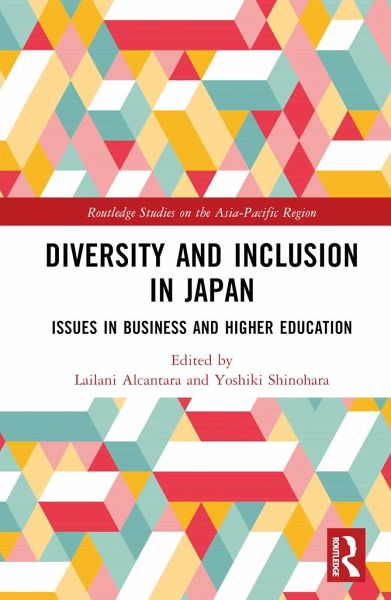
Diversity and Inclusion in Japan
Issues in Business and Higher Education
Herausgeber: Alcantara, Lailani; Shinohara, Yoshiki
Versandkostenfrei!
Versandfertig in 1-2 Wochen
149,99 €
inkl. MwSt.
Weitere Ausgaben:

PAYBACK Punkte
75 °P sammeln!
Alcantara, Shinohara and their contributors evaluate the current state of diversity and inclusion (D&I) within business and higher education in Japan, and the importance of D&I to the growth of Japan's economy and the enrichment of its society.













